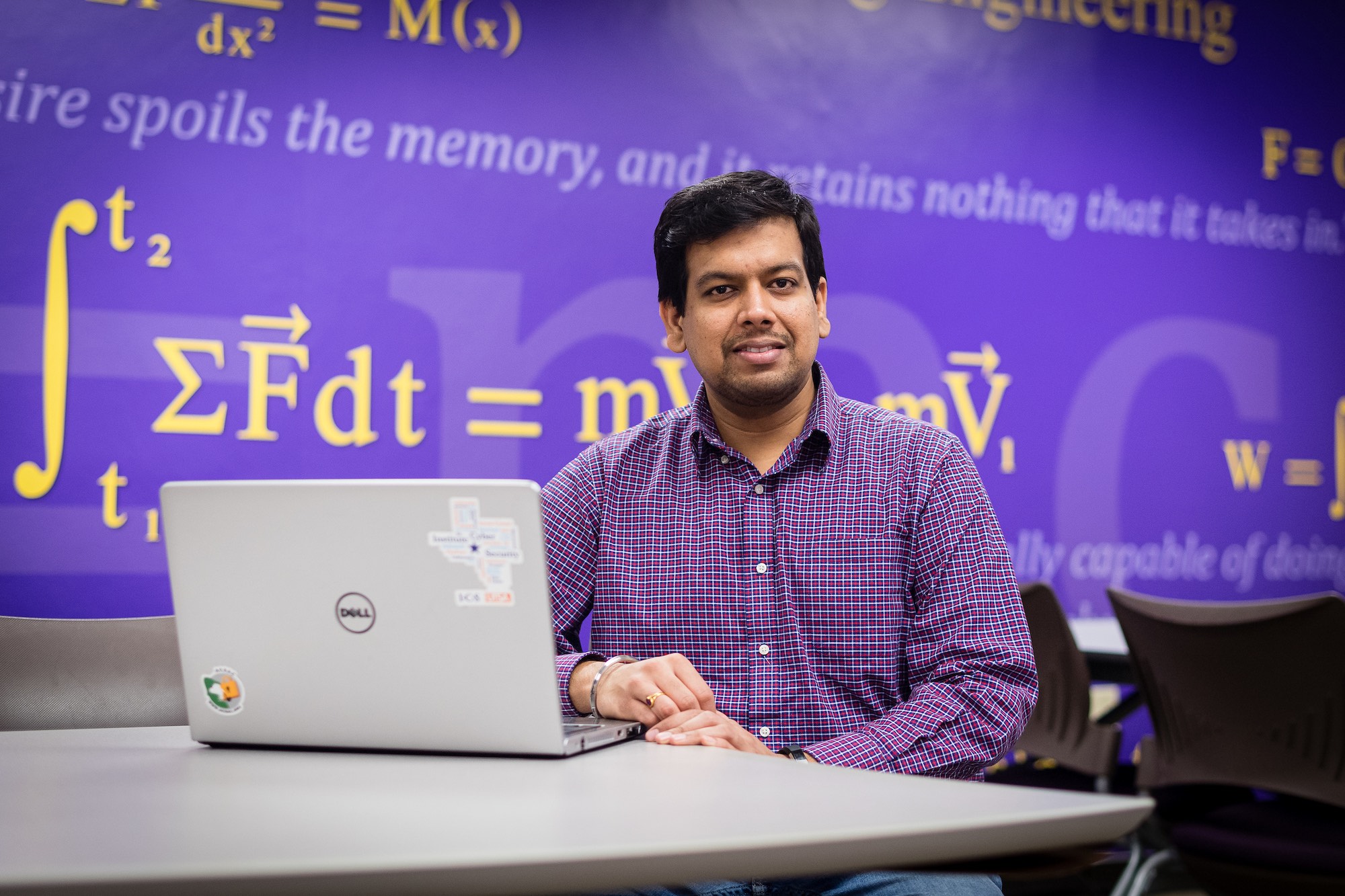Tech professor leads artificial intelligence and security research

Dr. Maanak Gupta
The phrase ‘generative artificial intelligence (AI)’ may conjure scenes from the Terminator
movies in many people’s imaginations, but Tennessee Tech University’s Maanak Gupta
knows that potential cyber threats can be mined with the growing use of generative
AI tools like ChatGPT.
“Several instances recently have demonstrated the use of GenAI tools in both the defensive
and offensive side of cybersecurity, and focusing on the social, ethical and privacy
implications this technology possesses,” he said.
The assistant professor of computer science, along with a dedicated team of students,
is spearheading innovative research in the field of AI by using early detection and
adaptive response strategies to fortify systems and networks against cyber threats.
“Malware is designed to be evasive and go undetected,” Gupta said. “We are working
on early detection methods to stay ahead of cyber criminals who are developing malware
that can fool AI by bypassing trained models.”
Gupta’s research has received grants from federal agencies including the National
Science Foundation, Department of Defense and National Security Agency.
The focus of his work lies in leveraging AI in a proactive approach to detect malware
and ransomware in a timely manner, preventing potential damage to critical systems,
networks and infrastructure. Recognizing the challenges posed by adversarial cybersecurity,
Gupta emphasizes the importance of understanding attackers’ tactics to develop effective
countermeasures.
“You have to think like an attacker to beat an attacker. That’s why the initial goal
of this research is to outsmart adversarial systems by training AI to detect new variations
of malware and ransomware,” he said.
The research also focuses on using AI to modify malware in ways to prevent it from
yielding adversarial results its cyber criminal creators intend.
While the buzz around AI technology, such as ChatGPT, continues to grow with varied
uses, Gupta expresses concern about the potential misuse of AI by cybercriminals.
“With minimal knowledge, cybercriminals can leverage AI to create malicious code,
which could pose a significant threat to cybersecurity,” he said.
The area of critical infrastructure examined most closely by Gupta’s research is in
agricultural settings. With the increasing integration of sensors in computerized
farming systems, such as timed irrigation delivery, there is a growing risk of cyber
threats to the world’s food supply.
Gupta’s team is developing AI-based intrusion detection systems to swiftly identify
and mitigate cyberattacks on agricultural technologies.
“Agriculture is a technologically advanced field, but farmers may lack a background
in data and security. We aim to bridge this gap by enhancing the cybersecurity of
interconnected agricultural systems,” he said.
Gupta teaches a course at Tech about AI for cybersecurity and actively shares his
knowledge through lectures, workshops and research findings. He collaborates with
researchers in the United States and other countries, emphasizing the ethical use
of AI.
“The ethical use of AI is crucial as the technology evolves. While we are in the early
phases of AI adoption, it’s never too early to start thinking about ethical considerations,”
he said.

